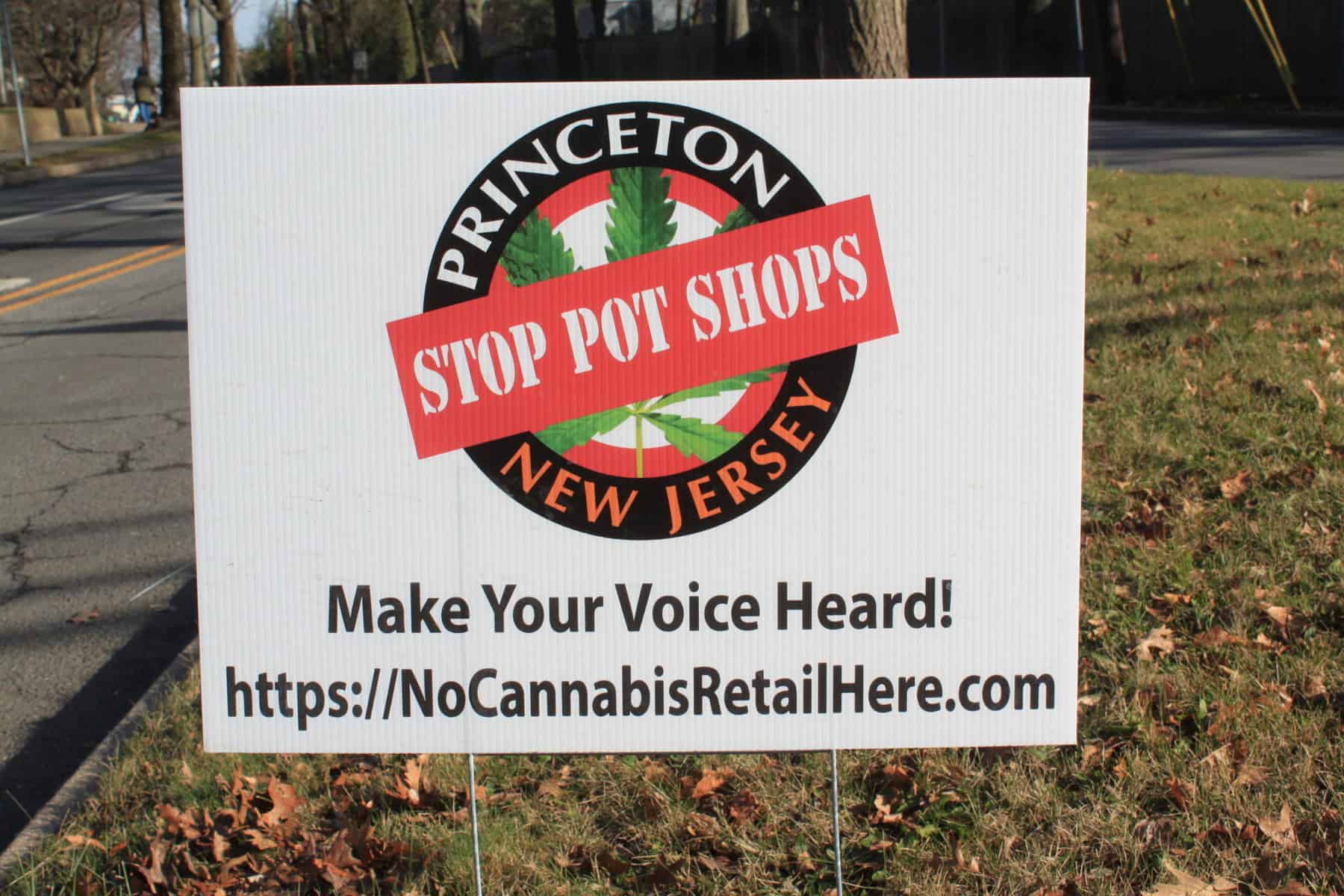A special Princeton Council meeting to discuss allowing retail cannabis stores in Princeton, set for Jan. 18, has been postponed until at least March.
The meeting date had been announced at the Princeton Council’s Dec. 21, 2021, agenda-setting meeting, but it was not posted on the January 2022 meeting calendar, so the decision was made to postpone it, Princeton Councilwoman Eve Niedergang said.
Niedergang, who chairs the Princeton Cannabis Task Force, said the rescheduled meeting would likely take place in March, but neither a date nor a format for the meeting had been set as of press time.
The 22-member Princeton Cannabis Task Force presented its recommendations to the Princeton Council at the council’s Nov. 30, 2021, meeting. The recommendations generated both criticism and praise from meeting attendees.
The task force recommended five commercial areas that could be zoned to permit cannabis retail businesses: the area around the Dinky train station on lower Alexander Street; the Jugtown neighborhood on east Nassau Street; the Central Business District; Witherspoon Street, between Green Street and Leigh Avenue; and Route 206, near Cherry Valley Road.
There would be no minimum distance from churches, playgrounds and parks, but the proximity of cannabis stores would mirror the regulations for liquor stores. A liquor store must be at least 200 feet away from a school.
The federal drug-free zone around schools is 1,000 feet, but task force members said that since there is no evidence that the 200-foot requirement for liquor stores led to underaged drinking, the same 200-foot standard should apply to cannabis stores.
Meanwhile, opposition to the proposal to allow up to three cannabis retail stores has picked up steam. A petition signed by nearly 800 people has been circulating on www.change.org.
The petition opposes allowing cannabis retail stores to be located near schools, playgrounds and residential neighborhoods in Princeton.
The petition states that children and adolescents who use cannabis or marijuana can suffer impairments in learning, decision making and cognitive functioning. It may also result in lower academic performance. Studies have show the effects are more severe than for alcohol, it states.
Representatives from the Princeton Public Schools also has weighed in on the issue, and sent a three-point position statement on allowing cannabis dispensaries in town to the Princeton Council. The school board approved the statement at its Dec. 14, 2021, meeting.
The school board urged the Princeton Council to adhere to the 1,000-foot buffer, or drug-free zone, around schools. New Jersey has legalized cannabis, but it is still illegal to possess or sell it under federal law.
The school board’s position statement acknowledged that state law allows a dispensary to be located closer than 1,000 feet to a school, but there is no law that would require the town to do so – nor is there a law that would stop the town from voluntarily adhering to the federal drug-free school zone buffer.
Its second point stated that the school district should receive a portion of the 2% sales tax proceeds from the sale of cannabis at the dispensaries. The money would be used to pay for school and public information campaigns about cannabis and its effects on the adolescent brain.
In its third and final point, the school board’s position statement sought a commitment from the Princeton municipal government, the Princeton Police Department and the cannabis dispensary owners to enforce state law to ensure that no sales would be made to anyone under 21 years old, which is the minimum age to purchase cannabis.

